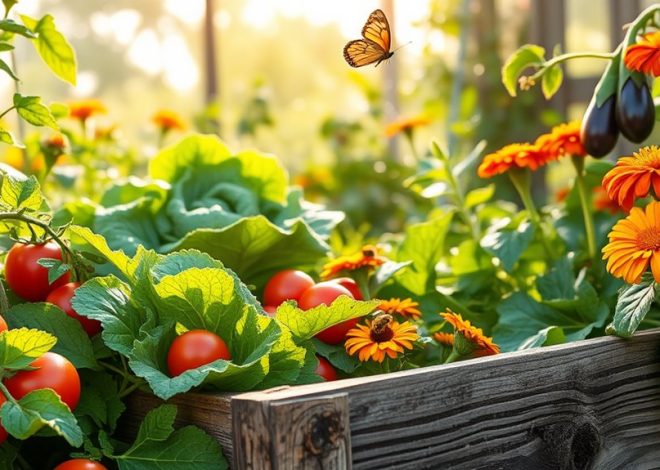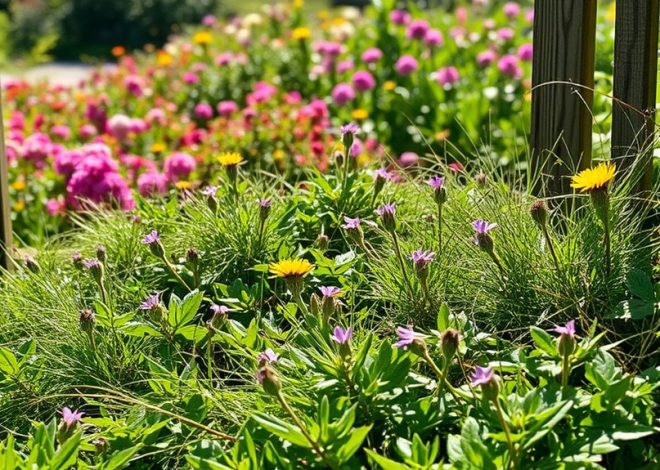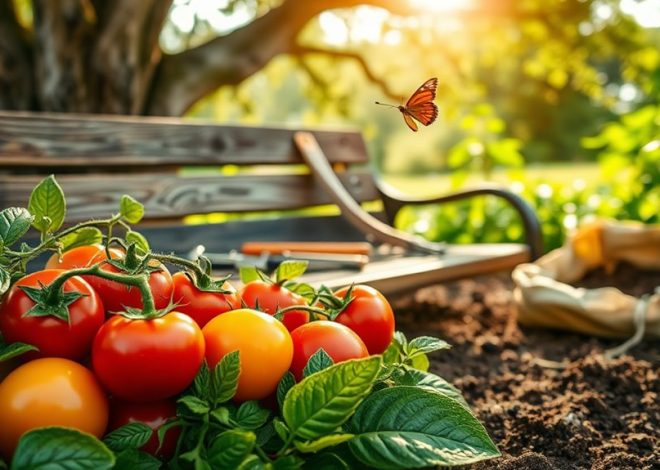
How I Reduced Garden Waste With This One Habit
How I Reduced Garden Waste With This One Habit
Picture a garden’s vibrant colors, thriving not just from sunlight and water, but from the waste you once discarded. By adopting one transformative habit, you can turn your garden’s clippings and scraps into rich, nourishing soil. This shift not only benefits your plants but also reduces your environmental footprint. Curious about how this simple practice can reshape your approach to gardening and waste management? Let’s explore the steps you can take to make this change.
Key Takeaways
- I set up a compost bin for all organic garden waste, diverting it from landfills and enriching my soil.
- I adopted mulching techniques for clippings, reducing waste and promoting healthier garden beds.
- I regularly scheduled time to turn the compost, speeding up decomposition and minimizing odors.
- I educated my family on what can be composted, fostering a collective effort to reduce waste.
- Tracking my progress helped me stay motivated and adjust my practices seasonally for better waste management.
Understanding the Impact of Garden Waste
Have you ever considered the true impact of garden waste on our environment? It’s a significant issue that often goes unnoticed.
When you throw away plant clippings, leaves, and other organic materials, you’re contributing to landfills, where they decompose and release methane—a harmful greenhouse gas.
By understanding this, you can take actionable steps to reduce garden waste. Composting is a practical solution that not only minimizes waste but also enriches your soil.
You can choose to mulch instead of bagging clippings, or even donate excess plants. Implementing simple habits like these can help you make a more significant impact.
Each small change you make can significantly lessen your environmental footprint.
The Habit That Changed Everything
What if adopting a single habit could transform the way you manage garden waste?
By committing to composting, you’ll not only minimize waste but also enrich your soil. Start by setting up a small compost bin in your garden or kitchen. Whenever you trim plants or peel vegetables, toss those scraps into the bin. This simple act can significantly reduce the volume of waste you send to landfills. Plus, you’ll create nutrient-rich compost that benefits your plants. Over time, you’ll notice less waste and healthier soil, making your garden thrive while practicing sustainability. Additionally, composting helps divert kitchen scraps from landfills, reducing greenhouse gas emissions. Embrace composting, and watch the transformation unfold.
Implementing the New Routine
How do you seamlessly integrate composting into your daily routine?
Start by designating a specific area in your kitchen for composting materials.
Use a container that’s easy to access and regularly empty it into your outdoor compost bin.
Schedule a weekly time to tend to your compost, turning it to aerate and speed up decomposition.
Incorporate composting into your gardening tasks by collecting waste during pruning or harvesting.
Educate your household about what can and can’t be composted, ensuring everyone participates.
Additionally, consider layering your organic materials to create a more effective compost pile, as proper layering organic materials can significantly enhance the decomposition process.
Benefits of Reducing Waste
Reducing garden waste not only helps the environment but also opens up opportunities for cost savings. By minimizing waste, you lessen your carbon footprint and contribute to a healthier ecosystem. Additionally, recycling organic materials can cut down on disposal fees and create valuable compost, making your garden more self-sufficient. Implementing zero waste gardening tips can further enhance your gardening routine and promote sustainability.
Environmental Impact Reduction
Why should you care about reducing garden waste? By minimizing waste, you’re directly contributing to a healthier environment.
Decomposing organic waste in landfills emits methane, a potent greenhouse gas. When you compost instead, you enrich soil and reduce your carbon footprint.
Additionally, reducing waste conserves resources; fewer materials needed means less energy spent on production. You also help prevent pollution from fertilizers and pesticides that can leach into waterways.
Embracing this habit not only nurtures your garden but also promotes biodiversity, helping to sustain ecosystems. It’s a practical way to make a meaningful impact on our planet’s health.
Cost Savings Opportunities
Have you considered the financial benefits of cutting down on garden waste?
By composting organic materials, you can reduce the need for store-bought fertilizers, saving you money.
Additionally, reusing garden waste for mulch can cut down on landscaping costs and improve soil health.
You’ll also save on disposal fees if you’re not sending as much waste to the landfill.
Plus, reducing waste often leads to less purchasing of new plants, as you’ll find you can propagate your favorites instead.
In the long run, these practices can significantly lower your gardening expenses while promoting a more sustainable approach.
Tips for Maintaining the Habit
Start by setting specific goals, like composting all organic materials.
Create a routine: designate a day each week for waste management tasks.
Keep your compost bin accessible and visible; this encourages regular use.
Track your progress, noting how much waste you’re diverting.
Educate yourself about seasonal plants that fit your composting plan, and adjust your garden practices accordingly.
Lastly, enlist friends or family to join you; accountability makes a difference.
Implement these strategies consistently, and you’ll solidify your commitment to reducing garden waste over time. Furthermore, understanding the essential ingredients of compost can enhance your gardening efforts significantly.
Real-Life Results and Reflections
Maintaining the habit of reducing garden waste can lead to noticeable improvements in both your garden’s health and your overall sustainability efforts. You’ll find that composting not only enriches your soil but also minimizes landfill contributions. Analyzing your results can help fine-tune your approach. Additionally, incorporating essential compost booster tips into your routine can further enhance the benefits of your composting efforts.
| Aspect | Impact |
|---|---|
| Soil Quality | Enhanced nutrient levels |
| Plant Growth | Increased resilience |
| Waste Reduction | Lower landfill volume |
| Eco-Friendly Practices | Positive community influence |
Reflecting on these outcomes encourages you to adapt and deepen your commitment to sustainable gardening.



